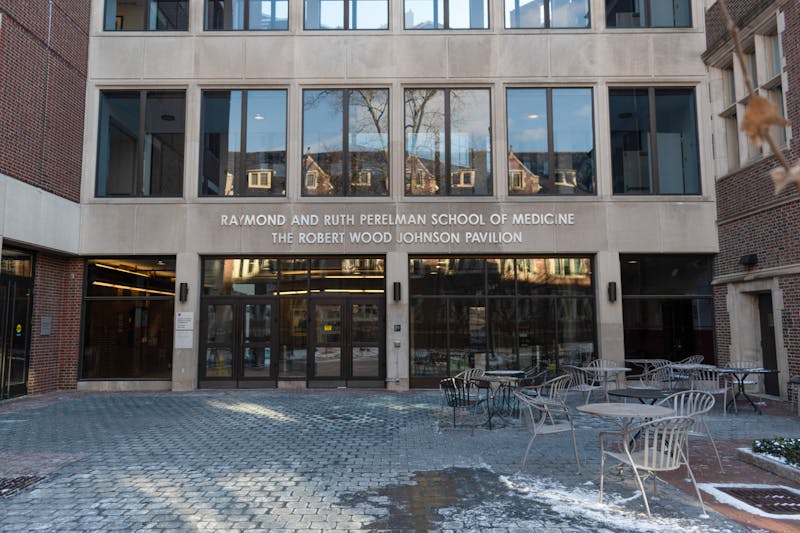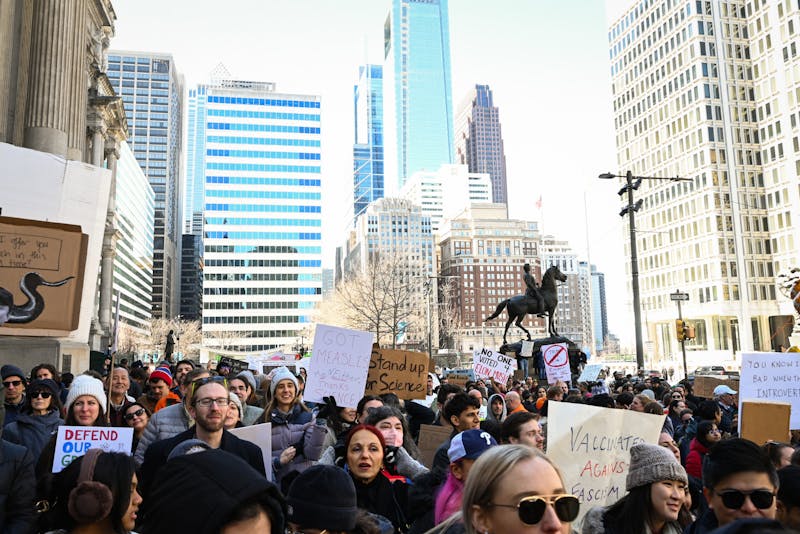
David Miliband, the head of the International Rescue Committee, explained efforts to alleviate the global refugee crisis on Jan. 31.
Penn's undergraduate Political Science Department organized a lecture-style event in Claudia Cohen Hall, followed by a question-and-answer session. Miliband is president and chief executive of the IRC, which currently employs 16,000 people throughout 40 countries and offers assistance to refugees displaced by war, natural disasters, or persecution.
The IRC was founded in 1931 by left-wing parties in Germany to assist victims of state-sponsored repression and persecution.
Before becoming the IRC's president, Miliband served as the United Kingdom’s foreign secretary from 2007 to 2010. He has previously taught at Massachusetts Institute of Technology and Stanford University.
Miliband explained the moral obligation to help refugees by emphasizing the difference between refugees and immigrants. He said that while "the baker from Damascus who’s bombed out from their house" flees for his life, immigrants relocate voluntarily.
"It’s not one is good and the other is bad," Miliband said. "In my political experience, when the two issues become confused, then both immigrants and refugees lose.”
Miliband explained that policy and politics can make a difference regarding the refugee crisis.
One way is by devoting more funding to educating refugees. “Two percent of the global humanitarian budget goes to education even though half of the world’s refugees are kids,” Miliband said.
Miliband emphasized that education and teachers can help students to recover from traumatic and violent experiences.
Another change that Miliband advocated for is international collaboration between countries attempting to solve the refugee crisis. “It’s a symbolic, political act of solidarity,” Miliband said. “For reasons of history, for reasons of the political systems that we are supposed to live by, there is a particular responsibility on Western countries to come to grips with the refugees' crisis. And if we don’t, that will be a moral fault.”
As to what each person can do, Miliband stressed individual power. “Your voice matters,” Miliband said.

Policies related to the global refugee crisis affect Penn students personally and have sparked rallies in support of refugees. Penn students have participated in competitions to pitch innovative solutions to issues displaced people often face. Some clubs, such as Penn Undergraduates for Refugee Empowerment, connect Penn students directly to refugees in an effort to address refugees' needs.
People who attended the event said the talk was helpful in approaching their future educations or careers.
Mahima Sukumar works at the Nationalities Service Center in Philadelphia and said she thought the event would help her professionally.
“I want to know a little bit more about the overarching picture and really getting an idea of what the different factors that go into these international policies when I work at a local level,” Sukumar said.
“Penn has world-class people to come in to give talks and I think it’s really insightful to draw back to a lot of history as well as modern problems. And [Miliband] tries to interlink the two,” Louis Cui, a one-semester exchange student from Australia said.
“We are very capable of teaching people how to assess policies, how to assess conditions that lead to the rise of interest groups and formation of policy conditions," Parish said. "But we usually don’t actually see sort of practical applications."
“We are very capable of teaching people how to access policies, how to access conditions that lead to the lives of interest groups and formation of policy conditions," Parish said. "But we usually don’t actually see sort of practical applications."
The Daily Pennsylvanian is an independent, student-run newspaper. Please consider making a donation to support the coverage that shapes the University. Your generosity ensures a future of strong journalism at Penn.
Donate






